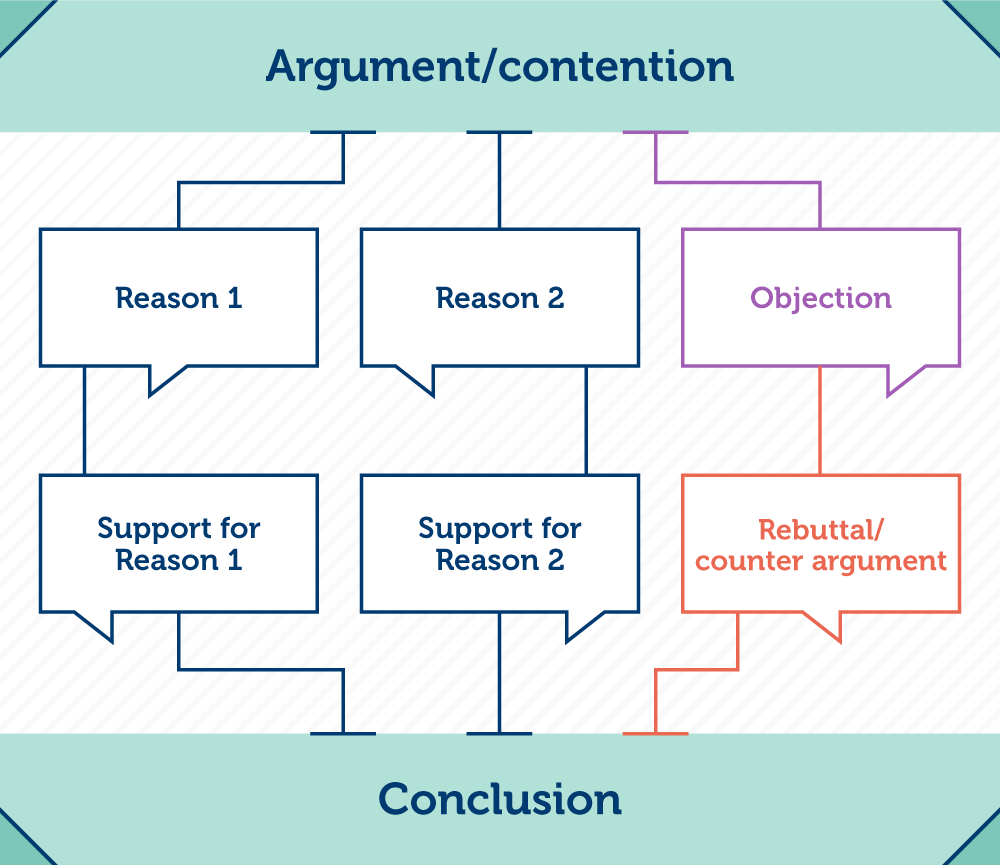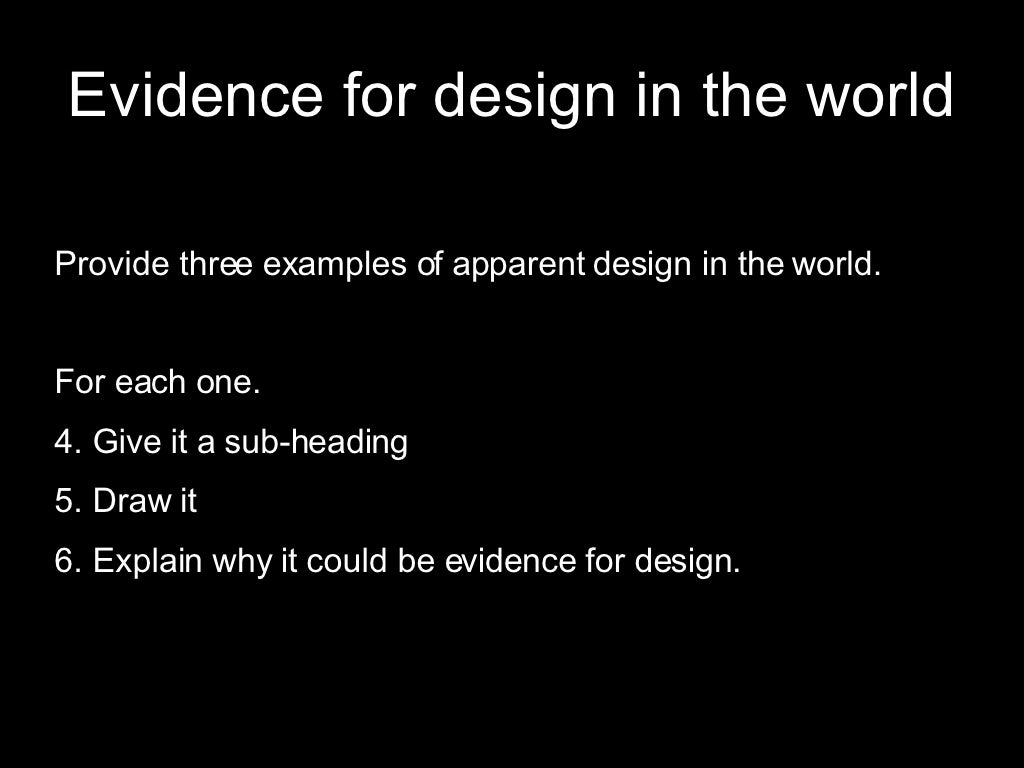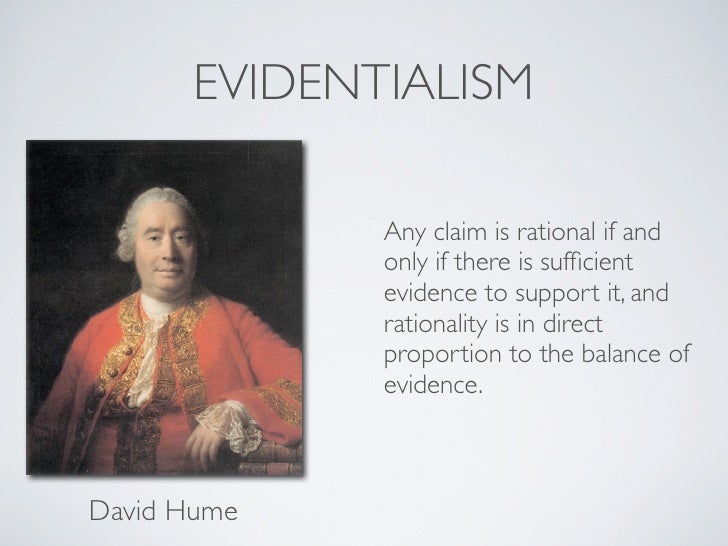Table Of Content

Yellow and Pink presents two puppets arguing about whether they must have been designed. This charming book actually does a nice job of presenting both sides of this discussion before its surprise ending resolves the issue. After reading the book to students, you can pose interesting questions about both sides of the argument, stressing that the issue is not whether or not God exists but the viability of this argument for establishing the existence of a creator of the world. One of the primary arguments for the existence of God as found within Hindu traditions is based on cosmological conditions necessary to explain the reality of karma.
Perception of purpose in biology
Nevertheless, the confirmatory version of the argument is vulnerable on other fronts. As a first step towards seeing one worry, consider two possible explanations for the observation that John Doe wins a 1-in-7,000,000 lottery (see Himma 2002). According to the Theistic Lottery Hypothesis, God wanted John Doe to win and deliberately brought it about that his numbers were drawn. According to the Chance Lottery Hypothesis, John Doe’s numbers were drawn by chance. It is clear that John’s winning the lottery is vastly more probable under the Theistic Lottery Hypothesis than under the Chance Lottery Hypothesis. By the Prime Principle of Confirmation, then, John’s winning the lottery provides a reason to prefer the Theistic Lottery Hypothesis over the Chance Lottery Hypothesis.
1 Introducing Naturalness
Similarly, if we already have adequate reason to believe that God exists, then design inferences can enable us to distinguish features of the world that merely happen from features of the world that are deliberately brought about by the agency of God. Indeed, to the extent that we are antecedently justified in believing that God exists, it is obviously more reasonable to believe that God deliberately structured the universe to have the fine-tuned properties than it is to believe that somehow this occurred by chance. At the outset, it is crucial to note that Collins does not intend the fine-tuned argument as a proof of God’s existence. As he explains, the Prime Principle of Confirmation “is a general principle of reasoning which tells us when some observation counts as evidence in favor of one hypothesis over another” (Collins 1999, 51). Indeed, he explicitly acknowledges that “the argument does not say that the fine-tuning evidence proves that the universe was designed, or even that it is likely that the universe was designed” (Collins 1999, 53). It tells us only that the observation of fine-tuning provides one reason for accepting the Theistic Hypothesis over the Atheistic Single-Universe Hypothesis—and one that can be rebutted by other evidence.
Save book to Google Drive
Themotivation for this prima facie arbitrary criterion is that itelegantly reproduces verdicts based on the above formulation ofnaturalness according to which low-energy phenomena should not dependsensitively on the details of some more fundamental theory withrespect to high energies. The persisting difficulties with testing multiverse theories are aprime reason why the multiverse idea itself continues to be viewedvery critically by many leading physicists (e.g., Ellis 2011). A more pressing problem would be the proliferation of “Boltzmannbrains” (BB) in a multiverse (Carroll 2020). The beliefs of suchnonstandard observers are formed by random processes and thereforelack rational support. Since there would be many orders of magnitudemore BBs than standard observers in a multiverse, it is statisticallylikely that you are not, in fact, a standard observer after all.
Based upon a highly Neo-Platonic methodology and ontology, Augustine argued that as God was omnibenevolent (all good), God would not introduce evil into our existence. Evil therefore did not argue against the reality or being of God but was a reflection for the necessity of God. Here we see the application of a set of working principles and the stressing of a priori resulting in what could be labeled (prima facie) a counterintuitive result.
Further claimed achievements of inflationarycosmology include its ability to account for the observed near-perfectisotropy of the universe and the absence of magnetic monopoles. Thestrongest empirical support for inflationary cosmology, however, isnow widely believed to come from of its apparently correct predictionsof the shape of the cosmic microwave background fluctuations (PLANCKcollaboration 2014). According to one version, the universe as a whole is like a machine; machines have intelligent designers; like effects have like causes; therefore, the universe as a whole has an intelligent designer, which is God.
David Hume

In any case, Aristotle was not understood this way by his followers in the Middle Ages, who saw him as consistent with monotheistic religion and a teleological understanding of all nature. This understanding of nature, and Aristotle's arguments against materialist understandings of nature, were very influential in the Middle Ages in Europe. The idea of fixed species remained dominant in biology until Darwin, and a focus upon biology is still common today in teleological criticisms of modern science. The history of design arguments stretches back to before Aquinas, who claimed that things which lack intelligence nevertheless act for an end to achieve the best result. Although science has advanced to discredit this claim, it remains true that many biological systems display remarkable adaptations of means to ends. Versions of design arguments have persisted over the centuries and have culminated in theories that propose an intelligent designer of the universe.

[T]he existence of order in the world confirms the existence of God if and only if the existence of this order in the world is more probable if there is a God than if there is not. The probability of order of the right kind is very much greater if there is a God, and so that the existence of such order adds greatly to the probability that there is a God. For who but an intelligent Being, what less than an omnipotent and infinitely wise God could contrive, and make such a fine Body, such a Medium, so susceptible of every Impression, that the Sense of Hearing hath occasion for, to empower all Animals to express their Sense and Meaning to others. If then what comes from art is for the sake of something, it is clear that what come from nature is too ... This is clear most of all in the other animals, which do nothing by art, inquiry, or deliberation; for which reason some people are completely at a loss whether it is by intelligence or in some other way that spiders, ants, and such things work.
EDI Class Brings Together Designers and Entrepreneurs News Northwestern Engineering - Northwestern Engineering
EDI Class Brings Together Designers and Entrepreneurs News Northwestern Engineering.
Posted: Fri, 23 Feb 2018 08:00:00 GMT [source]
The complexities of our existence can also, at the very least, argue that the BDA shows there is an order or design to the natural laws that shape us. In this way, a version of the BDA can collapse into a version of the fine-tuning argument. But the initial evidence still begins with observations we can make here and now, and the potential for illustrating the likely existence of God through scientific investigations is powerful.
According to nih.gov, multicellular organisms evolved from unicellular eukaryotes at least 1.7 billion years ago. It’s fairly obvious why multiverse scientists must justify the first two premises. If there aren’t a massive number of universes, then it will still be unlikely for the constants of nature to have the right values by chance alone.
Sometimes these new traits are so unfavorable to a being’s survival prospects that beings with the traits die off; but sometimes these new traits enable the possessors to survive conditions that kill off beings without them. If the trait is sufficiently favorable, only members of the species with the trait will survive. By this natural process, functionally complex organisms gradually evolve over millions of years from primordially simple organisms.
One thing complicating general assessments of design arguments is thatthe evidential force of specific Rs is affected by thecontext of their occurrence. Specifically, properties which seem toconstitute marks of design in known artifacts often seem to havesignificantly less evidential import outside that context. Forinstance, we typically construe enormous complexity in something knownto be a manufactured artifact as a deliberately intended and producedcharacteristic. But mere complexity in contexts not taken to involveartifacts (the precise arrangement of pine needles on a forest floor,for instance) does not seem to have that same force. In the case ofnatural objects, it is less clear that such complexity—as wellas the other traditional empirical Rs—bespeaksintention, plan, and purpose. The confirmatory version of the fine-tuning argument is not vulnerable to the objection that it relies on an inference strategy that presupposes that we have independent evidence for thinking the right kind of intelligent agency exists.
He did not, however, make a formal argument for the existence of God; rather, God's existence is already presumed and Augustine is giving a proposed view of God's teleology. Augustine's perspective follows from and is built upon the neo-Platonic views of his era, which in turn have their original roots in Plato's cosmogony. Theories of chemical necessity are problematic because chemical necessity can explain, at most, the development of highly repetitive ordered sequences incapable of representing information. Thus, while chemical necessity can explain periodic order among nucleotide letters, it lacks the resources logically needed to explain the aperiodic, highly specified, complexity of a sequence capable of expressing information. Modern evolutionary biologists do not part company with Paley on the claim that complex organs must arise through a mechanism other than pure chance. The disagreement is only with his subsequent assertion, that “in no assignable instance hath such a thing existed without intention somewhere” (p.63).
He listed alternative hypotheses and argued that the use of the design argument could not determine the nature of deity. This examination of the design argument will point out several problems with Hume's arguments against design. It will argue however, that Hume demonstrated that an intelligent design inference could not be used to determine the nature of the designer. Organismic design arguments start with the observation that organisms have features that adapt them to the environments in which they live and that exhibit a kind of delicacy.
No comments:
Post a Comment